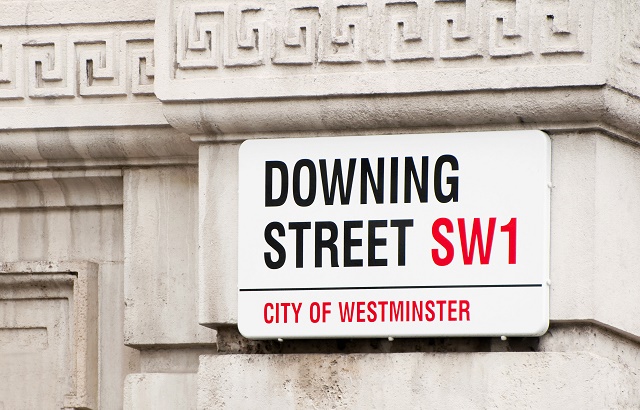Boris Johnson started his first day as UK prime minister by sacking 11 members of his predecessor Theresa May’s cabinet in a mass Brexiteer reshuffle.
After being elected leader of the Conservative party on Tuesday, Johnson has placed his faith into former home secretary Sajid Javid to become the chancellor of the exchequer.
Javid is reportedly set to make drastic changes to prepare for a potential no-deal Brexit, something Johnson is adamant he will carry out if the withdrawal agreement with the EU is not revisited.
Unlike previous cabinet changes, the industry has been fairly quiet about the former Deutsche Bank managing director and what plans are expected.
It has been equally quiet with regard to the other cabinet changes that took place overnight, suggesting that the bulk of the financial services sector may be taking its time before passing judgement.
Positivity
“Javid’s philosophy fits much closer to Johnson’s, which should deliver a more conservative budget with tax cuts,” David Zahn, head of European fixed income, senior vice president and portfolio manager at Franklin Templeton Fixed Income Group, said.
“His finance background should allow him to communicate with the financial markets much better than Hammond.
“I expect a fairly significant overhaul of public finances with less austerity, tax cuts and a focus on investing in projects that support growth in the future.
“Javid’s appointment is positive for the City as you have a chancellor who understands it and what his department can do to help support the City’s growth.”
Fresh slate
Jon Greer, head of retirement policy at Quilter, said: “The tax system has grown ever more complex under the stewardship of George Osborne and Phillip Hammond, leaving plenty of unfinished business for Sajid Javid.
“There is a backlog of unhelpful policies that are at best obfuscated tax grabs and at worst badly thought out measures with dire unintended consequences.
“The annual allowance taper, residence nil rate band and Lifetime Isa have all made our tax and savings system more complex. These contrived policies were aimed to target very specific behaviours and practices, but the complexity of the design means they have come with a bundle of unplanned consequences or have failed to gain traction with savers.
“The new chancellor has a fresh slate and a crucial year ahead to fix these problems before a possible election.”
Javid’s shopping list
Steve Webb, director of policy at Royal London, said: “The new chancellor will have a long shopping list of issues that he needs to address whilst also trying to resolve Brexit-related uncertainty as soon as possible.
“A key priority would be simplification of the pension tax relief system not least in light of the problems being caused for the NHS as a result of the tapered annual allowance and lifetime limits.
“It is to be hoped that the new chancellor does not however carry out his previous threat to put a hold on automatic enrolment in the even to of a no-deal Brexit.
“Automatic enrolment has been such a policy success story, reversing decades of decline in pension membership, it would be a terrible mistake to disrupt it at this stage.”
Tom Selby, analyst at AJ Bell, added: “Clearly getting Brexit over the line by 31 October is going to dominate politics in the short-term, but I wouldn’t be surprised to see the Treasury revisit the pension tax taper to signal its commitment to the NHS.
“Scrapping this would cost about £1bn ($1.24bn, €1.12bn), but that might not be a barrier if the Johnson government is prepared to abandon Philip Hammond’s fiscal rules and increase borrowing.”
Consistency
Someone who wasn’t sacked in Johnson’s reshuffle frenzy on Wednesday was Amber Rudd, who kept her role as secretary of state for the Department for Work and Pensions (DWP).
The industry was not very pleased with Rudd’s appointment in November, but this continuity may have made some quite positive.
Quilter’s Greer added: “Since Iain Duncan Smith left the role after six years in March 2016, we have seen a string of politicians try and fail to hold onto the coveted cabinet role of work and pensions secretary, so it is pleasing to at least see some consistency with Amber Rudd staying on in Boris Johnson’s new look cabinet.
“Rudd has not had much time to implement anything particularly meaningful since taking the reins.
“However, in some ways this is a good thing as the DWP is responsible for long-term savings policy and it’s simply impossible for the public to have faith in any enacted policy when the leadership of the department chops and changes so frequently. The only hope is that Rudd stays for more than one calendar year.
“The pressing problems she was presented with when she took over still persist and more have been added since then, giving her a substantial to-do list.”
Overshadow
However, some said Rudd may not be the most influential person when it comes to pensions policy.
“As secretary of state, Amber Rudd is technically in charge of UK pension policy,” Webb said. “But in reality, she will continue to have to focus on wider departmental responsibilities such as sorting out issues around Universal Credit as well as taking on new responsibilities are minister for Women and Equalities.
“In terms of day-to-day activity, the appointment of a new DWP pensions minister is likely to be of greater significance to the pensions world, although whoever takes that role will be significantly constrained by the dominance of the Treasury when it comes to key decisions around pensions.”
At the time of publication, the pensions minister was still Guy Opperman, a role he has held for just over two years.
Greer added: “Given Rudd has an expanded role we hope the workload isn’t too much and important long-term savings initiatives fall by the wayside. Pensions policy need to remain a priority.”








